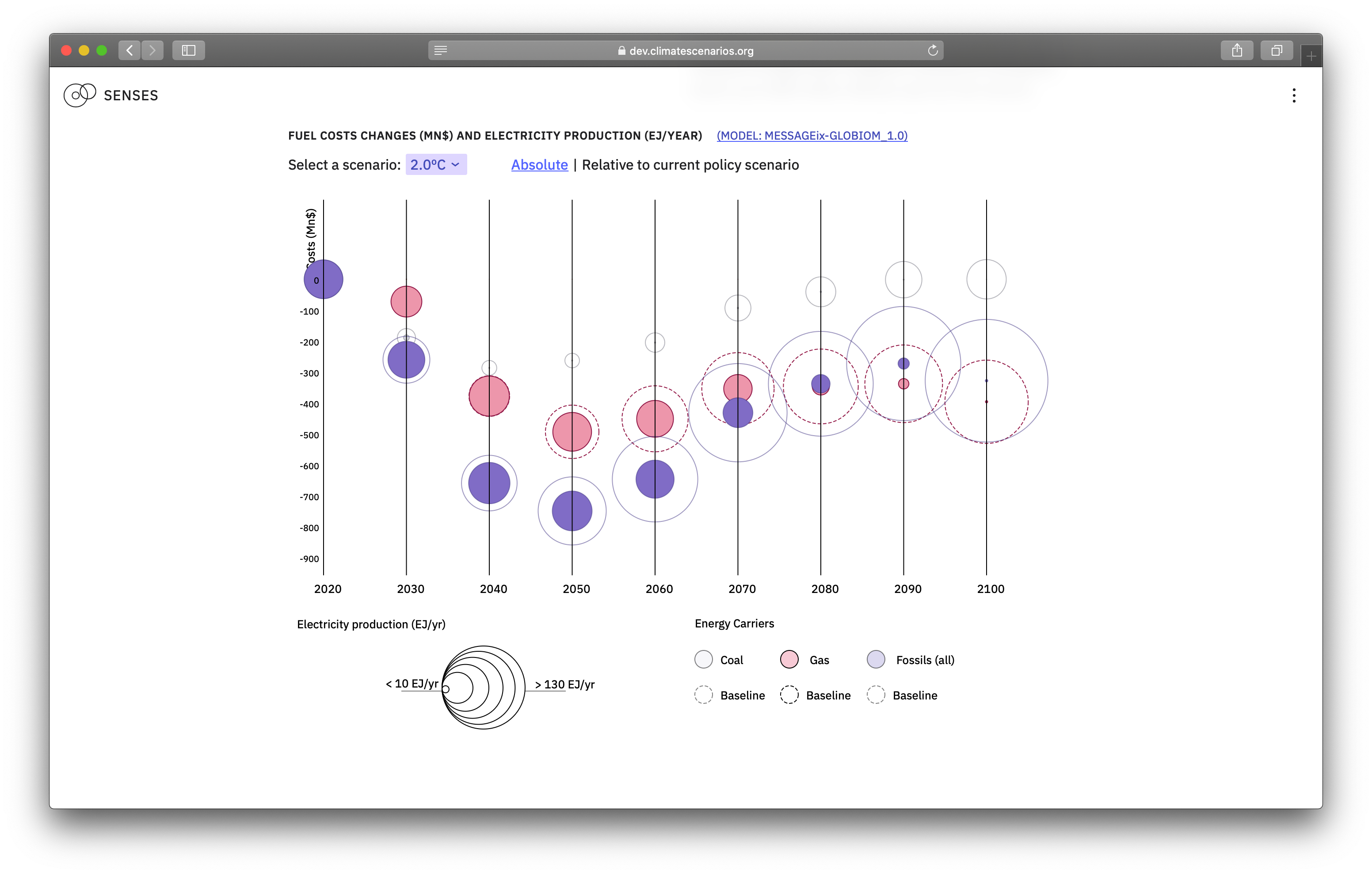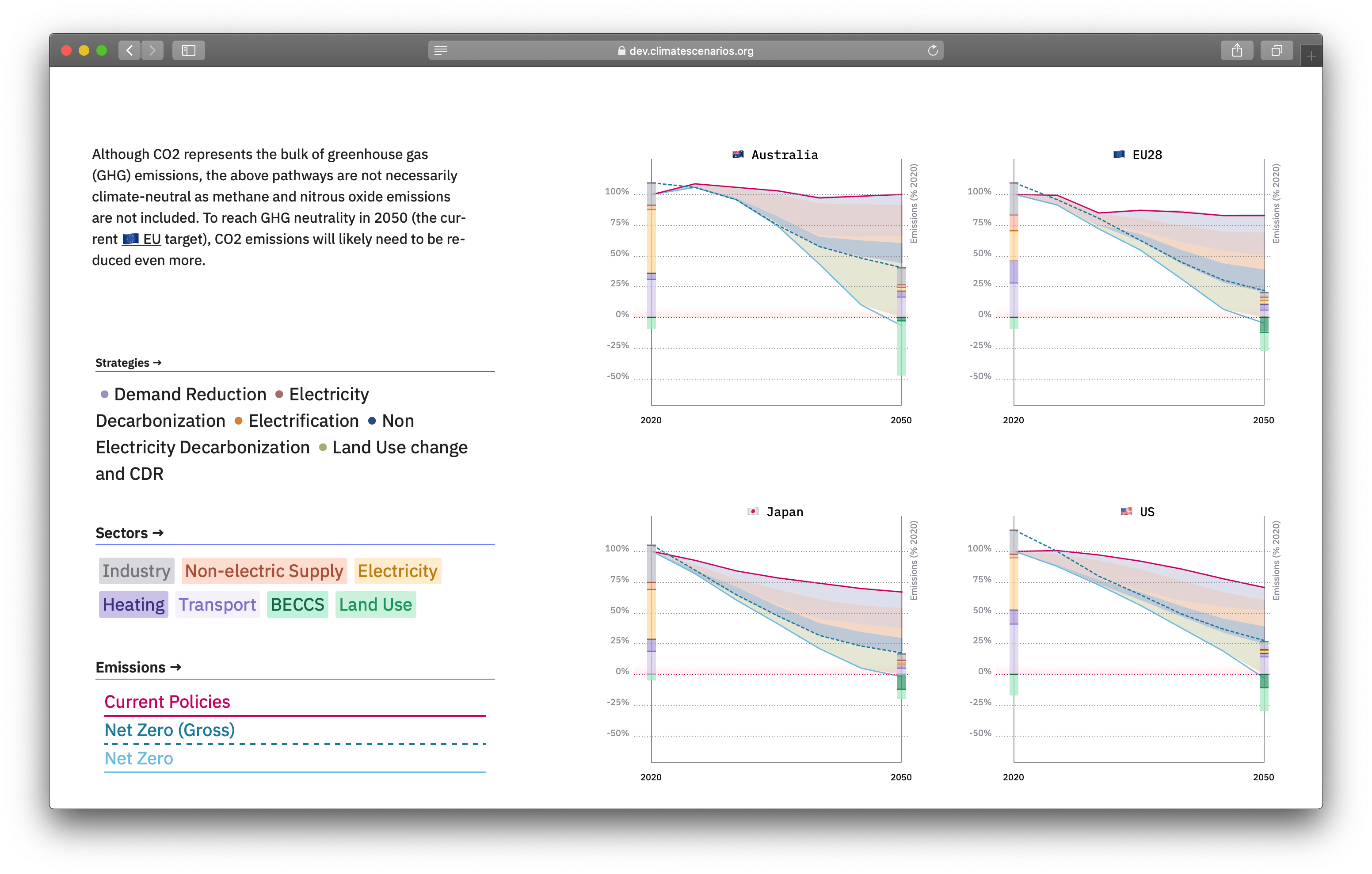Visualizing Climate Scenarios: the SENSES Toolkit
SENSES is a project about climate change scenarios. Each visualization explains different climate futures to policy-makers, finance experts, and citizens.
Link:
Team and partners:
Boris Müller,
Jonas Parnow,
Fidel Thomet,
Nadia Zeissig
Year:
2020
SENSES investigates potential socio-economic futures in the face of climate change and how this knowledge can be made accessible to a broader public. SENSES goal is to develop tools and approaches to make the new generation of climate change scenarios more comprehensible, culminating in a climate service for decision makers. Climate change scenarios are complex prediction of possible futures. Scientists, stakeholders, policy makers and activists have to deal with scenarios complexity on a daily basis. In the making of SENSES our aim was to provide a shared understanding on topics such as financial risks assessment, mitigation pathways, adaptation strategies, and so on. The project sees a number of partners involved, among them the Potsdam-Institut für Klimafolgenforschung and the Internationales Institut für angewandte Systemanalyse.

Our design method consisted in working together with scientists. One scientist and one designer conceptualized and developed single units of knowledge covering one specific topic. Our role as designers was relative but not limited to creating innovative climate visualizations, we also designed the graphical identity and the communication strategy of the project.

The consortium of the SENSES project has internationally recognized expertise in climate change scenario research and design and visualization techniques, and large experience in working with the user groups targeted in this project. The involved partners are the Potsdam Institute for Climate Impact Research, the International Institute for Applied Systems Analysis, the Stockholm Environment Institute, the Wageningen University & Research, and the University of Applied Sciences Potsdam.
A longer and more detailed description of the SENSES project can be found here.